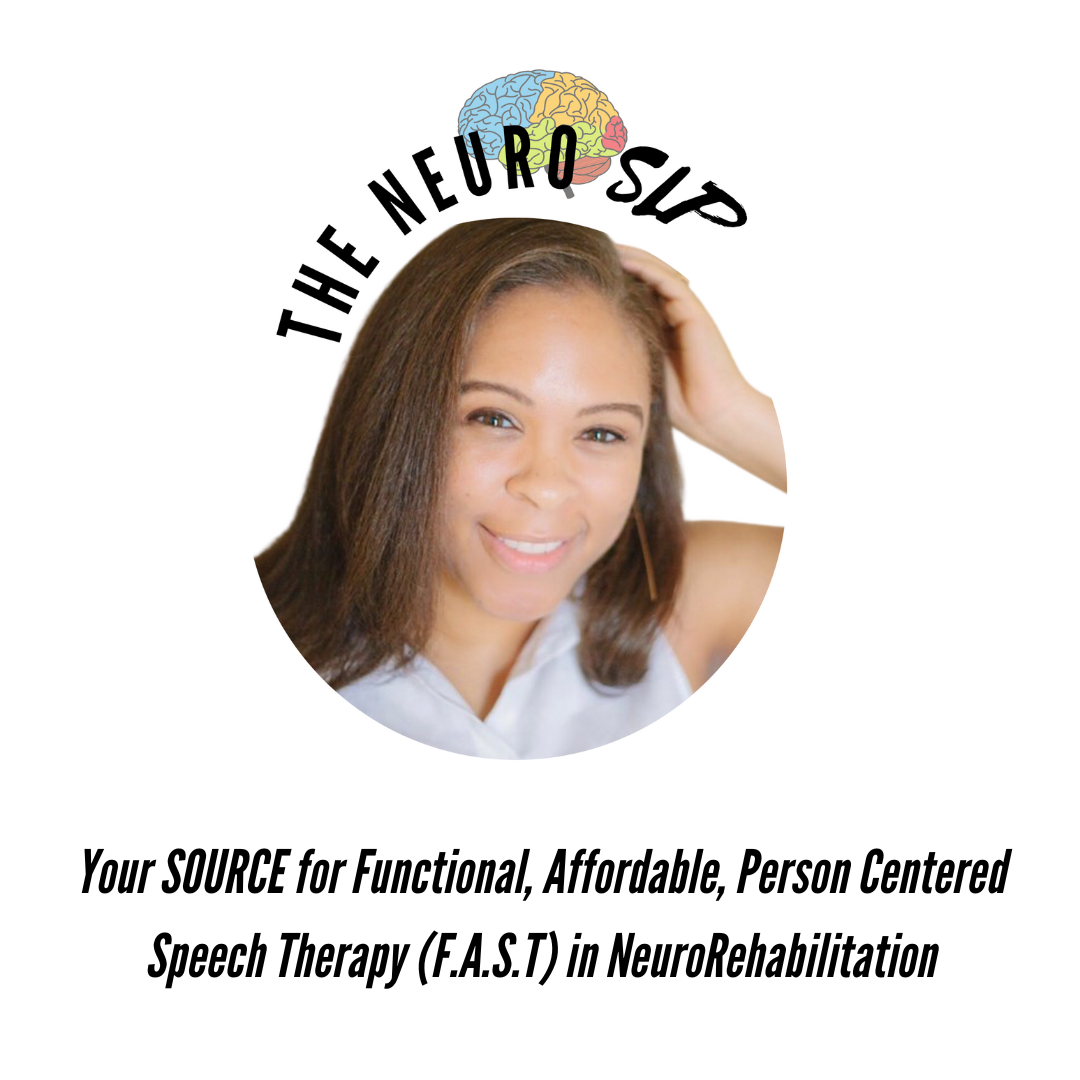
Before we begin...
What is Neurorehab?
What is Speech Language Pathology (SLP)?
NEUROREHAB: The rehabilitation that a person receives AFTER they have experienced neurological changes (ex: stroke, brain injury, etc)
SPEECH LANGUAGE PATHOLOGIST: a licensed clinician who is responsible for the assessment and treatment of communication, cognition, and swallowing.
Put the two terms together and you have NEURO + SLP. That's what I am! (*and thousands of other SLPs too).
I created this online space to be a source/resource for SLPs, SLP students, patients, and caregivers. Recovery is a TEAM EFFORT and facilitating recovery is as much of an ART as it is a SCIENCE, Because of this, its important to share knowledge and inspire each other.
If you're ready to learn and be inspired, click the links below to:
- Access my (F)unctional, (A)ffordable, (S)peech (T)herapy Activity Guides
- Download FREE patient handouts
- Read my blog posts
- Connect with me on Instagram
- Join my Email List
